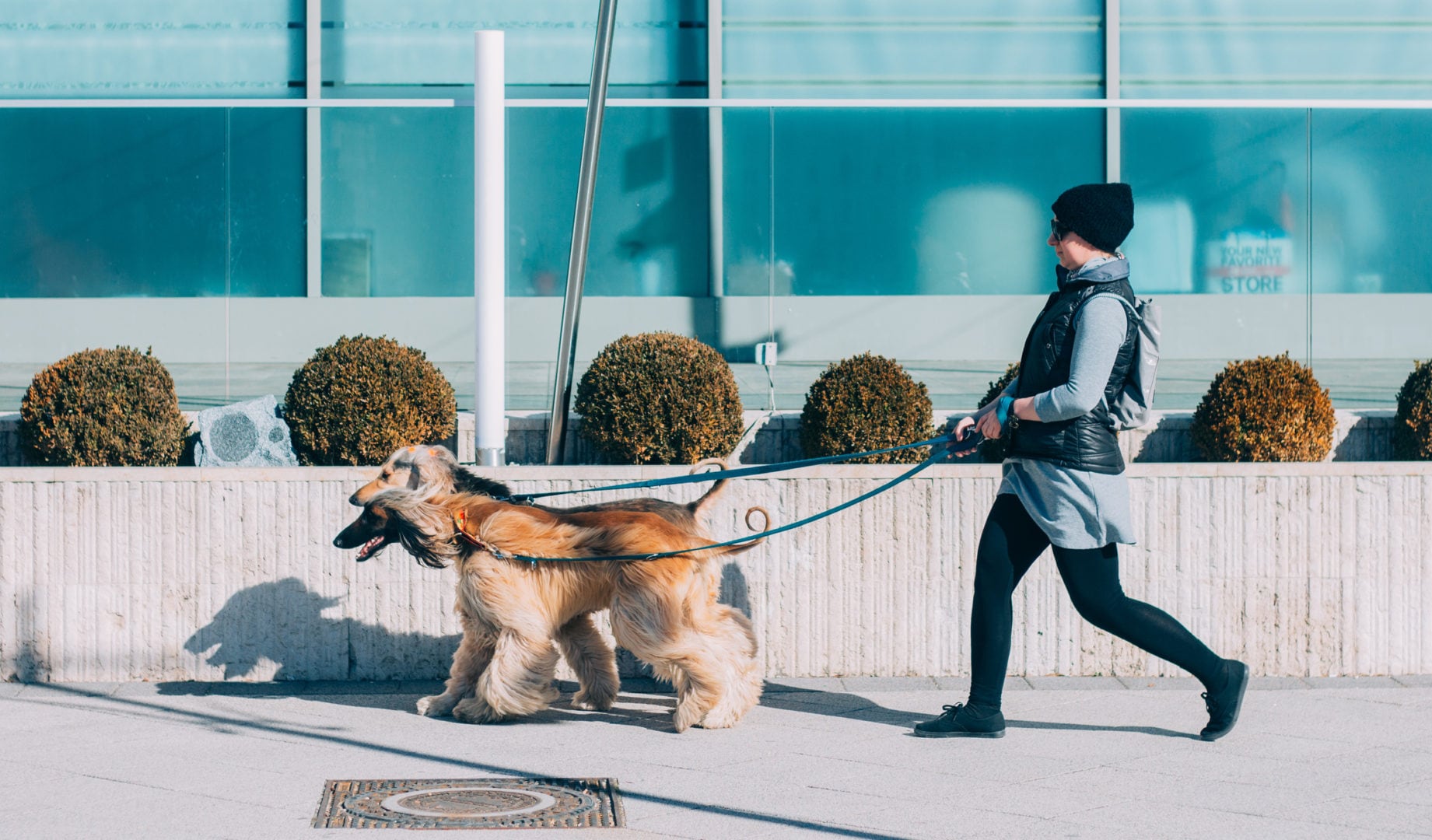If you have an instinctive understanding of our four-legged friends and are planning a career in dog walking, there may be only one thing stopping you from making the leap: cold hard cash.
How much do dog walkers make? What you’ll earn for a dog-walking job varies depending on where you live, how many dogs you walk, and how often you pound the pavement. (For example, if you don’t do doggie duty on weekends, that will be a factor.)
Here are a few key insights into what dog walkers can potentially make each year, including what other expenses you may incur and what your career may look like as your dog-walking business grows.
Going rates for dog walkers around the country
Dog walker salaries vary between cities, but an average dog walker in the UK will make between £10 and £14 per hourly walk. If you walk one dog per hour for eight hours a day, that’s a starting salary of £20,000 a year, straight off the bat. If you’re not working for an organisation that places you with pooches, you’ll pocket all of that. If you’re working for a company that takes a cut of your pay, your salary will obviously be less, but you won’t have to spend time and effort on any of the scheduling, job hunting, etc.
A good way of enhancing your dog-walking income is by doing group walks with several dogs at a time. If you can walk up to 20 dogs a day, this can increase your pay dramatically, leading to a tidy salary at the end of the month.
Consider how large a geographic area to cover with your business: if you focus on a wide perimeter rather than a local neighbourhood, you’ll lose time travelling, as it takes longer to get from job to job. Your salary will really depend on what kind of business model you have, whether this involves group walks, and how close your walks are to each other.
Additionally, some dog walkers will set a weekly or monthly rate with their clients, rather than billing for individual walks. While the rate per walk may be lower, this gives dog walkers more consistency with their pay, which is key for anyone who has regular bills to pay.
2. As you grow, so do your expenses
When you first start out, you shouldn’t expect to shell out on much more than the odd roll of poop bags here and there. But as your business grows, additional overheads may come into play. Office rent, software costs, employee pay, and benefits and insurance are all examples of expenses incurred by a growing business—and a good sign that your business is booming.
However, if your organisation gets big enough for you to start taking on employees and focusing on strategy, you might end up missing out on the whole reason you got into the job in the first place: quality time with your puppy pals. If that’s the case, you might want to readjust so you have time to go for walkies, too.
3. You may need other sources of income when you start out
Growing a dog-walking business can take time—and if you have bills to pay, that can be scary. Once you start rolling, however, you might find yourself inundated with prospects. It all depends on how much work you put in, how much you network and market yourself, and how strong a brand you build.
You may need to have a second job or find other sources of income before you really start to make a living at dog walking. Renting out or Airbnb-ing a spare room in your home could be a relatively easy way of generating income until the numbers from your dog-walking business start to add up.
If you’re in full-time education and only have a few hours to spend, dog walking can be a great gig to supplement your student lifestyle. But if you’re looking to replace full-time work and fund the trappings of family life, you’ll need to commit a lot more time. Consider overnight pet-sitting as well as regular walks to boost your business. The more you put in, as a rule, the more you get out.
4. There are other expenses you’ll need to think about
If you live in an area where you’ll have to travel by car to see dogs, petrol money and car or bike maintenance will be other expenses you’ll incur. You’ll also need liability insurance to ensure you’re covered if the worst happens. In general, however, smaller items like poop bags and treats will be provided by the pooch parent.
The good old British climate may also call for clothing to make outdoor work a little more bearable. Waterproof, hooded clothing is a must for rainy days, as are sturdy boots and thermals for when it gets really chilly outside.
5. Your income may not always be consistent
As a profession, dog walking can have its ups and downs. Your client base will change, and that’s not something that’s fully within your control: dogs get ill or old and pass away, dog owners’ incomes change, and people up sticks and move to another town. This is a career that calls for flexibility and resilience in the face of change.
If you hit a slow or difficult patch, don’t panic: dog walking is a business that has quiet periods, just like any other. Believe in yourself—your new client might be just about to come bounding round the corner.
